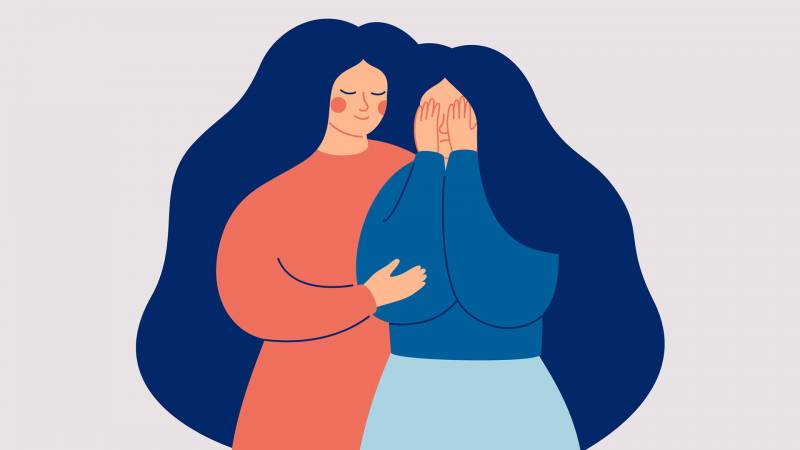There’s hope that the coronavirus pandemic will end soon as the pace of COVID-19 vaccinations picks up in California. But we’re not out of the woods yet. The past year has already taken a toll on mental health, and it’s going to take fortitude to get through the rest of the year. Here are some tips from mental health experts on how to keep us grounded and healthy into a post-coronavirus future.
Anxious? Break It Down
At Crisis Support Services of Alameda County, the staff answers over 40,000 calls a year to their 24-hour hotline. One helpful strategy for folks feeling overwhelmed, says Executive Director Narges Zohoury Dillon, is to identify what is — and isn’t — within their control.
The key is to break down the amount of time you’re looking ahead. If worrying about what might happen a month from now is giving you a sense of looming doom, try focusing instead on the next few minutes or hours. Dillon says zooming in to a smaller amount of time helps us with that “sense of overwhelm that comes with what’s going to happen.”
Keep Up Your Self-Care Routine
At the start of the COVID-19 pandemic and the first shelter-in-place order, the internet was full of creative ways people were taking care of themselves. Livestream concerts, Zoom workouts and other self-care tips abounded.
Whatever worked to help you relax and take care of yourself then — whether it was yoga, adopting a pet or giving yourself a manicure — stick to that routine, says Allison Thompson, a psychologist and a clinical associate professor at the Stanford University School of Medicine. Thompson understands it can be hard to stay resilient over the long term, but a consistent routine helps, she says.
“I am a firm believer in self-care. For me, it’s making sure that I exercise and that I cook,” she added. But she stresses that self-care looks different for each of us, so do whatever makes you feel nourished and comforted. That might include setting boundaries in your work day, staying connected to the important people in your life and asking for support from friends and family when you need it.
Don’t Avoid Things, Do What Feels Safe
Maybe like me, you’ve avoided supermarkets during the pandemic and the idea of entering one still feels a little scary. Thompson, who specializes in treating post-traumatic stress disorder, says in a post-pandemic world we can learn from research-based treatments that work for trauma.
She says that people tend to deal with their anxiety by avoiding. “Avoidance is a wonderful short-term strategy, but an awful long-term strategy.”
Thompson tells her patients to make a list of the things they’ve been avoiding because of trauma. Then she has them go out and do those things mindfully.

